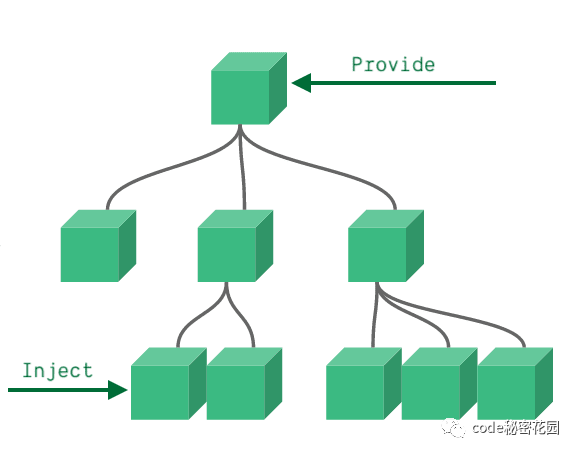With Vue 3.0, Vuex may be able to retire early
Jun 01, 2021 Article blog
Table of contents
This article was reproduced from the public number: Code Secret Garden
Vuex
is a great state management library. I
t's simple and integrates very well with
Vue.
W
hy would anyone give up
Vuex
T
his may be because the upcoming
Vue3
release exposes the underlying responsive system and describes new ways to build applications.
The new responsive system is powerful and can be used directly for centralized state management.
Do you need a status share?
In some cases, the flow of data between multiple components can be difficult to transform, requiring centralized state management. These include:
- Multiple components use the same data
- Components are deeply nested
If none of the above holds true, the answer is simple: you no longer need state sharing.
But what if you have one of these situations? T
he most direct answer is to use
Vuex
This is a proven solution and works well.
But what if you don't want to add additional dependencies or find the settings too complicated?
The new
Vue3
version and
Composition API
address these issues through their built-in methods.
New solutions
The sharing state must meet two criteria:
- Responsive: When states change, the components that use them should also be updated
- Availability: State can be accessed in any component
Responsive
Vue3
exposes its responsive system with a number of features.
You can use
reactive
function to create responsive variables (instead of
ref
function).
import { reactive } from 'vue';
export const state = reactive({ counter: 0 });
Proxy
object returned from the
reactive
function is an object that can track changes in its properties.
When used in a component template, the component is re-rendered when the response value changes.
<template>
<div>{{ state.counter }}</div>
<button type="button" @click="state.counter++">Increment</button>
</template>
<script>
import { reactive } from 'vue';
export default {
setup() {
const state = reactive({ counter: 0 });
return { state };
}
};
</script>
usability
The example above is useful for a single component, but other components cannot access the state.
To overcome this problem, you can use
provide
and
inject
methods so that any finger in the
Vue 3
app is accessible.
import { reactive, provide, inject } from 'vue';
export const stateSymbol = Symbol('state');
export const createState = () => reactive({ counter: 0 });
export const useState = () => inject(stateSymbol);
export const provideState = () => provide(
stateSymbol,
createState()
);
When you pass
Symbol
as a key and value to
provide
method, it can be used by any subcommission in that method.
Key uses the same name when
Symbol
provides and
key
values.

This way, if you provide a value on the topmost component, it will be available in all components.
Alternatively, you can call
provide
on the main application instance.
import { createApp, reactive } from 'vue';
import App from './App.vue';
import { stateSymbol, createState } from './store';
const app = createApp(App);
app.provide(stateSymbol, createState());
app.mount('#app');
<script>
import { useState } from './state';
export default {
setup() {
return { state: useState() };
}
};
</script>
Make your code stronger
The above solution works, but with one drawback: you don't know who modified what. The status can be changed directly, with no restrictions.
You can use the
readonly
function to wrap the state to protect it. I
t overrides the variable passed in the
Proxy
object, which blocks any modifications (warning when attempting to modify).
These changes can be handled by individual functions that have access to writeable storage.
import { reactive, readonly } from 'vue';
export const createStore = () => {
const state = reactive({ counter: 0 });
const increment = () => state.counter++;
return { increment, state: readonly(state) };
}Externally, only read-only states will be accessible, and only exported functions can modify writeable states.
By protecting the state from unnecessary modifications, the new solution is relatively close to
Vuex
summary
By using
Vue 3
responsive system and dependency injection mechanism, we have moved from a local state to centralized state management that can replace
Vuex
in smaller applications.
Now we have; a state object that is read-only and can respond to changes to the template. S
tates can only be modified in specific ways, such as
actions/mutations
in
Vuex
You can use
computed
function to define additional
getter
Vuex
has more features, such as module processing, but sometimes we don't need it.
That's
W3Cschool编程狮
says
about Vue 3.0, and Vuex may be able to retire early,
hoping to help.